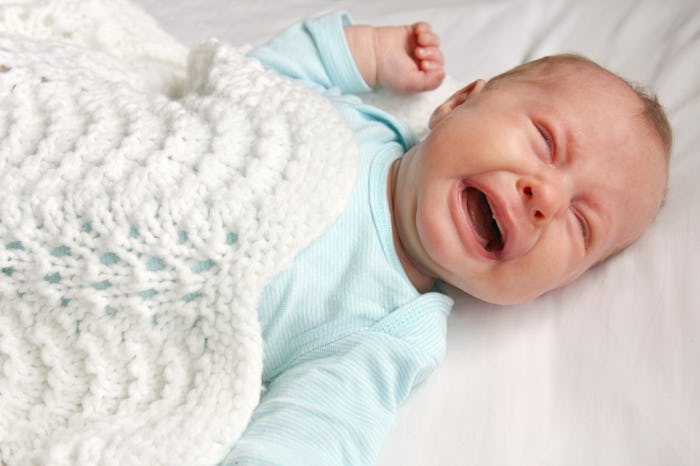Life

Here's How To Customize Cry It Out So It Works
It's always wise, when making decisions that affect the whole family, to carefully consider all your options. When undertaking a task as important as sleep training, finding the method that is the best fit may take some time as well as trial and error. But being clear on each approach will point you in the direction that you feel most comfortable with help you to be successful. To get started, take a look at cry it out, a method that is customizable for each family. But how does cry it out work so differently for everyone? Because you decide where to draw the line with the tears.
Depending on your comfort level and your baby's personality, you can use a version of cry it out to help your little one learn how to fall asleep (and stay asleep) on their own. According to Baby Center, the theory behind crying it out is that, with the help of an adult, children can learn to soothe themselves to sleep, both at bedtime and when waking in the night. Unfortunately, in the early stages of this learning process, an unavoidable side effect is crying. But how long and how frequently you allow your baby to cry it out is totally up to you.
All methods of cry it out advise putting your bambino to bed drowsy, but awake, then offering no no more soothing for a certain amount of time. As the website for What To Expect explained, being consistent with your sleep plan will bring the best results. So if you determine that you are going to leave your baby to cry for five minutes, do your best to stick with that time period before going back to the crib and offering comfort.
According to Baby Sleep Site, crying it out is not about crying, it's about setting limits that encourage healthy sleep habits. Some feel that light bursts of crying with intermitted soothing from parents works well, while others allow their child to cry to extinction, which is to say, when they fall asleep. Although it can be extremely difficult to listen to your baby cry, the longterm pay off may be worth the temporary discomfort.
Research has shown that crying it out does not lead to higher stress levels in babies, the website for CNN reported. Furthermore, self-soothing does not cause children to feel less attached to their parents and has no baring on behavioral issues later in life. Which is evidence to quiet any underlying worries that letting your child cry will cause emotional damage.
When it comes to crying it out, finding what feels right for you and your baby is the first step. With some consistency and patience, this method is effective at laying a strong foundation of good sleep habits for years to come.